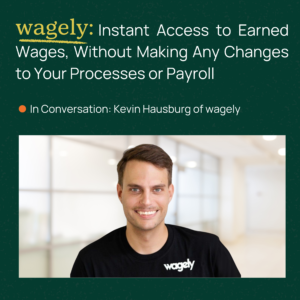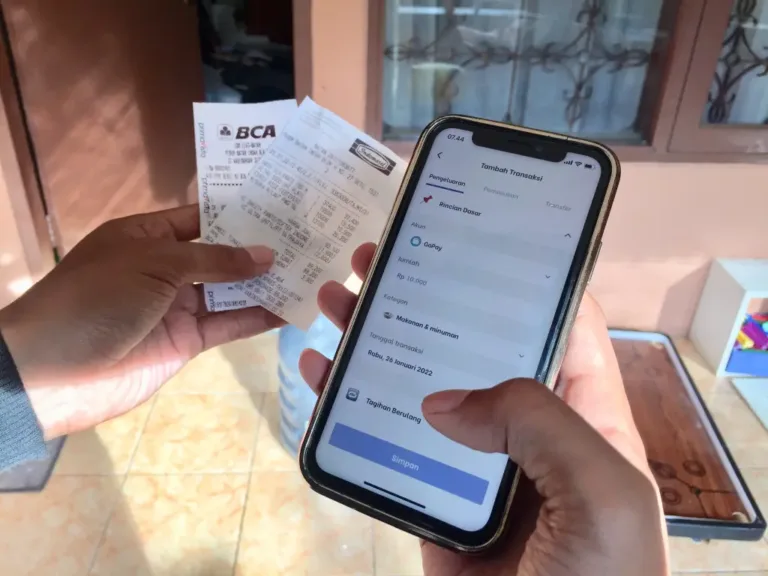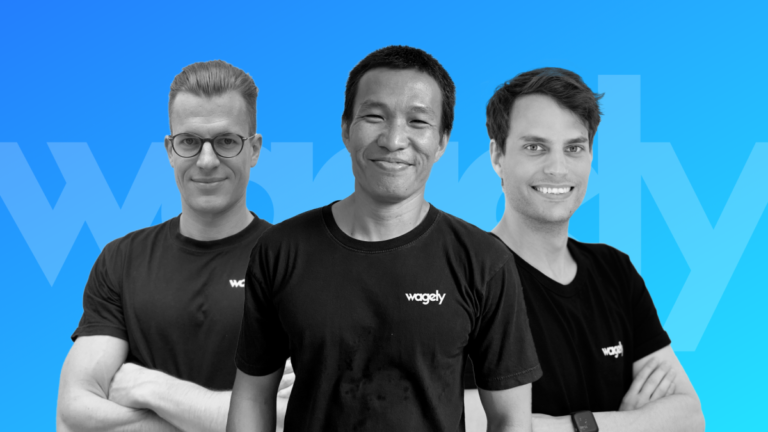
A dynamic entrepreneur with a proven track record, Kevin brings a wealth of experience and passion to responsible financial wellness.
Before spearheading wagely, he played a pivotal role as the co-founder of MADAPE Media, specializing in creating holistic dialogues between brands and their customers, especially various financial services companies and emerging startups across Southeast Asia (SEA). This experience provided him with an invaluable firsthand look into the intricacies of the local banking and lending ecosystems, exposing him to the unique challenges and opportunities within the financial landscape of the region.
Now, as the driving force behind wagely, Kevin has shifted focus to further propel employee financial well-being in Indonesia and Bangladesh. wagely’s exponential growth is a testament to his commitment to helping individuals regain control over their income and finances, proven to make a tangible impact on reducing turnover, enhancing engagements, and increasing business savings.
1. What is your personal background and how did it lead you to the idea of wagely?
My background is in business and finance, and having lived and worked across Europe and Asia, I’ve seen different financial services landscapes up close. It is clear that the financial system is pretty broken, especially for the blue-collar. It’s not just about numbers and transactions; it’s about real people struggling to make ends meet, getting trapped in vicious cycles of debt as they lack fair and accessible financial options. That firsthand experience lit a fire and urged me to find potential solutions for them. I saw a gap, a real need for change, and that’s where wagely comes in. It’s about bringing a solution that’s not only smart and tech-driven to scale, but also genuinely understands and addresses the financial battles these workers face daily.
2. How do you envision wagely making a positive impact on the financial lives of lower- and middle-income workers in Asia?
Being financially healthy is about more than just making ends meet; it’s about achieving stability, reducing financial uncertainty, and having the means to plan for the future. Unfortunately, too many workers are caught in a relentless churn of high-interest predatory loans, especially when they’re hit with unexpected expenses. This debt trap doesn’t just eat away at their income; it suffocates their chances of building meaningful financial stability or security.
To counter this we started on this journey by offering workers a lifeline out of this vicious cycle and eliminating the need for any loans. Instead, we offer workers the flexibility to access their salaries anytime instead of waiting until the end-of-month payday. This accessibility to their own money—when they need it—means workers can manage emergencies without the crippling costs of traditional loans, keeping them on track toward building a financially stable, and hopefully, secure future. It’s a significant shift from reactive, costly financial coping mechanisms to proactive, empowering financial management.
3. What are the key features that employees find most beneficial?
Our core service today, earned wage access, really resonates with employees. It’s a game-changer for them to start their financial management journey. Employees appreciate the ability to withdraw their earned wages instantly, anytime, day or night. This level of flexibility and immediacy is unprecedented in the traditional wage systems of Indonesia and Bangladesh.
Many add-ons such as bill payments that help their day-to-day lives have been positively welcomed too. We aim to further introduce more features that are seemingly basic to us (read: white collars living in more developed cities) to their lives: from QR payments to debit cards, and bigger credit lines powered by our proprietary credit scoring tech for more sudden but urgent expenses such as hospital bills, house renovation, etc.
4. How does wagely adapt to different regulatory environments?
Specifically for earned wage access, it is not considered as lending as we are not providing any advances or charging any interest. We have engaged in open dialogues with regulators from the very beginning, laying out our model, its benefits, and how it aligns with the broader goal of enhancing the financial well-being of the working population.
We emphasize how wagely addresses critical issues like the debt cycle and lack of savings, presenting our solution not just as a business model but as a tool for social and economic betterment. It’s a collaborative, respectful approach to innovation, ensuring that our service is not just revolutionary but also responsible and regionally attuned.
5. What have been the most significant challenges in establishing and growing wagely? How has Trihill Capital been helpful in that?
One of the most significant hurdles has been educating both employers and employees about the benefits of our service, especially clarifying that what we offer fundamentally differs from loans or lending services. It’s about shifting mindsets and debunking misconceptions, ensuring that earned wage access is understood as a tool for financial empowerment that does not put you in debt.
Trihill Capital has helped us navigate these challenges and provides crucial insights into how to effectively communicate our value proposition in a way that resonates with both employers and employees. Their extensive network has opened doors with key partners including major financial institutions, allowing us to engage with meaningful stakeholders and build trust and credibility in new markets.
6. What advice do you have for other entrepreneurs looking to tackle social impact issues through their businesses?
Eyes on the prize. Ensure every piece of your business, from your product to customer interactions, aligns with your mission to drive real change. Dive deep into your market, be patient but push hard, and don’t underestimate the power of local insights and solid on-the-ground partnerships. It’s about striking that balance—creating a business that’s both impactful and sustainable.
Edited by: Alwyn Rusli; Daryl Lim





